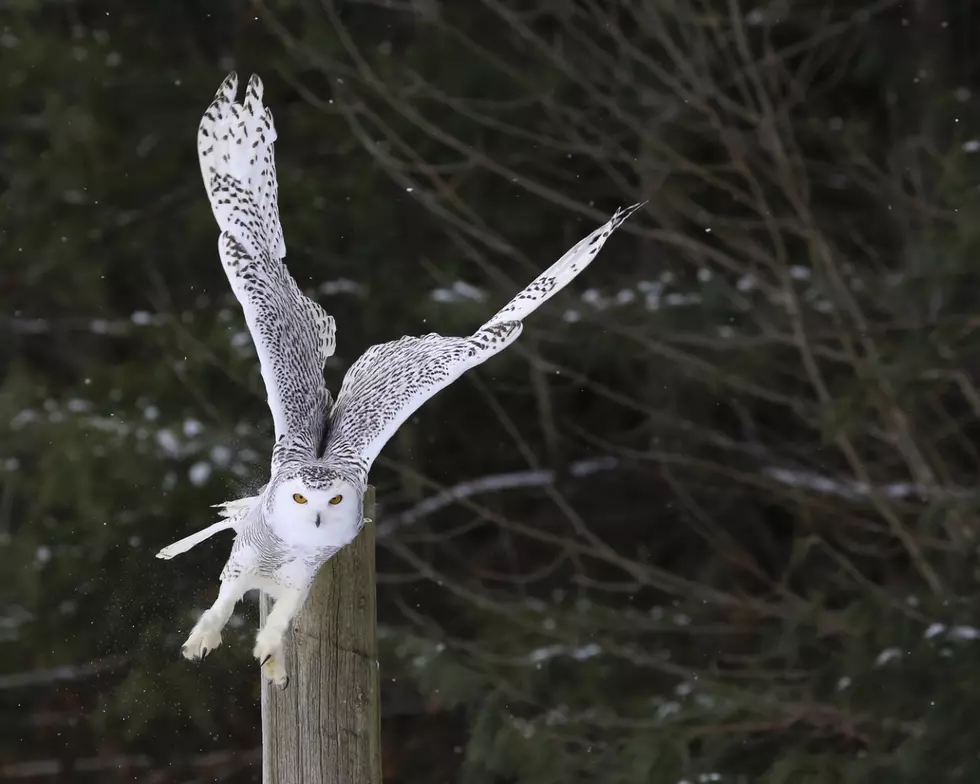
A Certain Poison Is Killing A Massive Amount Of Wildlife In Massachusetts
You would think that rat poison is used to eliminate that type of vermin, but some shocking news is surfacing as this is also being used to kill owls and eagles throughout the Bay State and that is not only upsetting to hear, it is a violation of eliminating wildlife that proves to be beneficial in our wooded areas as these species are actually doing a world of good, but the question is: Why are people killing these birds of prey? A member of New England Wildlife, Zak Mertz says every case is heartbreaking, but what happened to one Great Horned Owl last summer has stuck with him. Here is his reaction to this devastating news:
"A barred owl was found in Mount Auburn cemetery. When he first came in, he couldn't even stand up. He was virtually comatose when we got him. S-GARS (Second Generation Anti-Coagulant Rodenticide Poisoning) This cheap mechanism prevents blood from clotting as poison bait blocks are put back into black rat boxes on every street corner downtown"
Reports also indicated a pair of bald eagles also died and just a few months later, a baby eagle was poisoned in Arlington. Residents there are already pushing to ban rodenticide as this is a problem when birds of this magnitude are ingesting this brutal poison and whoever is responsible is breaking the law as eagles are considered endangered species and protected by U.S. Federal Laws. They are declared the nation's primary bird that are featured in all-important symbols to represent our freedoms in this country.
It is all a matter of coincidence on how these fine feathered friends get sick: Mertz adds to why this has become a statewide problem:
"What happens is the mouse or rat comes along, it will go into the box and eat the poison, and the mouse doesn't die right away. It ends up getting sick. So, what you end up with is a slow, sick mouse that looks like a really easy meal for a predator. If you're a barred owl like the one we have in our care right now, you may think you're getting an easy lunch. You swoop down, you eat the sick mouse and all of a sudden, you've dosed yourself with that same poison, This stuff really moves through the food chain pretty easily and that's one of the biggest problems, it's not targeted. It's preventable, and with good education people will make better choices we just need to get the word out there."
While Mertz supports alternatives and IPM methods for managing rodents, he warns we would be better off just letting nature do its thing:
"Rodenticide doesn't just kill owls; it is a threat to any animal that feeds on mice and rats. I can tell you from having owls in care, each one of those owls probably eats 1,000 to 2,000 mice a year. If we take them out by using this poison, not only are we harming our environment, but we're actually taking away some of the rodent control and allowing rodent populations to proliferate".
Massachusetts State Representative Jim Hawkins is pushing to implement The S-Gars Bill as pesticide companies must disclose information to customers on the effects of rat poison and the harm it presents to the environment. Mertz added: "If this legislation doesn't go through, these animals continue to get sick by eating mice and rodents that have eaten the SGARs, and we continue to lose not only a lot of animals and biodiversity and all ecosystem services all across The Bay State".
The city of Boston is already trying a more targeted approach, using a carbon monoxide smoke out machine. In Somerville, electric smart boxes are helping the city solve their rodent problem. Environmental Health Coordinator Colin Zeigler explains further on this ongoing problem:
"When a rodent enters, it pings the extermination crew and tells them a rat has entered the box. An elevator picks up the rat, puts it into a contraption, zaps it, and puts it in a bag for easy disposal,"
The other problem encountered is that rodenticides are still used by pest professionals but the public has the power to further prevent these tragic happenings. Residents can show their support by contacting their local State Representative or Senator. To access this information, log on to The Mass Legislature web site by going here.
KEEP READING: See how animals around the world are responding to COVID-19
More From WNAW AM









